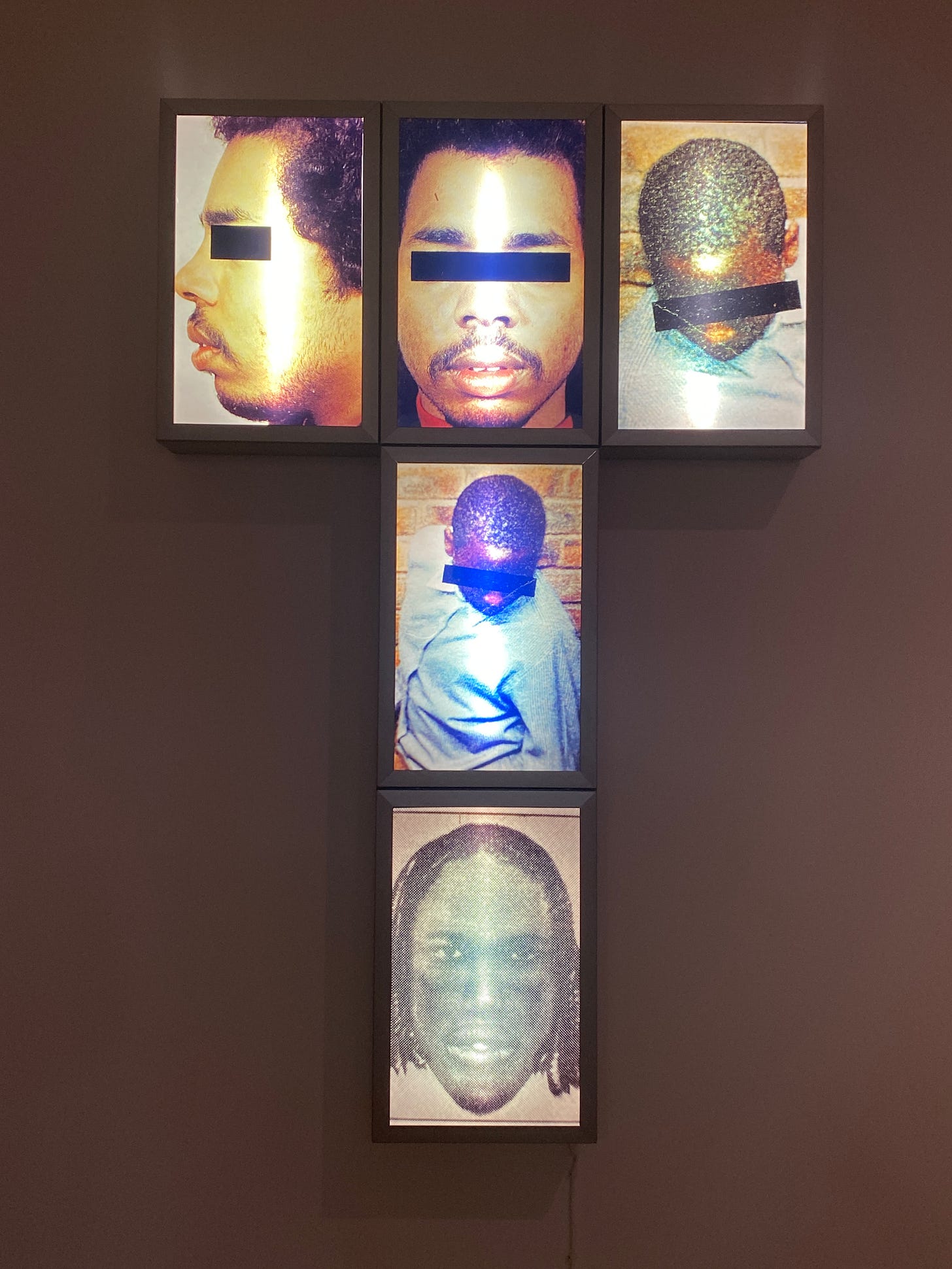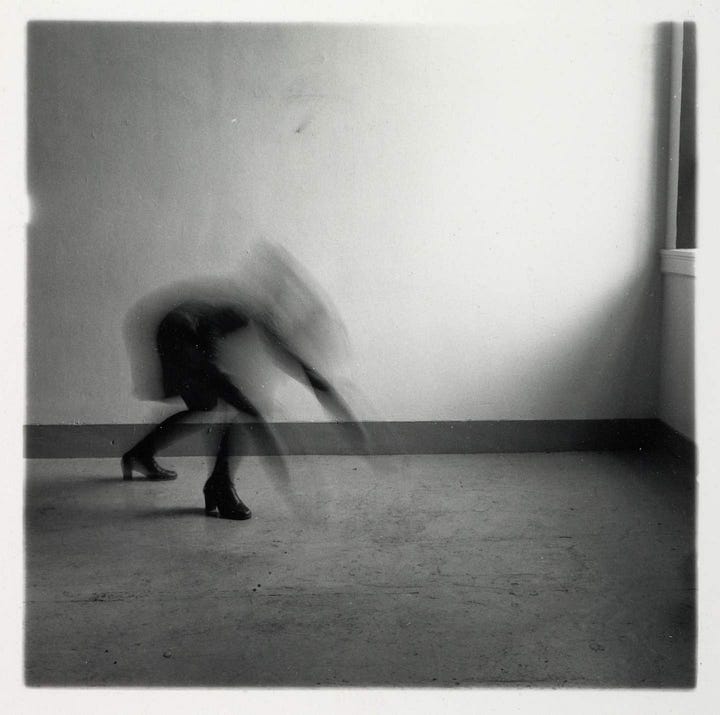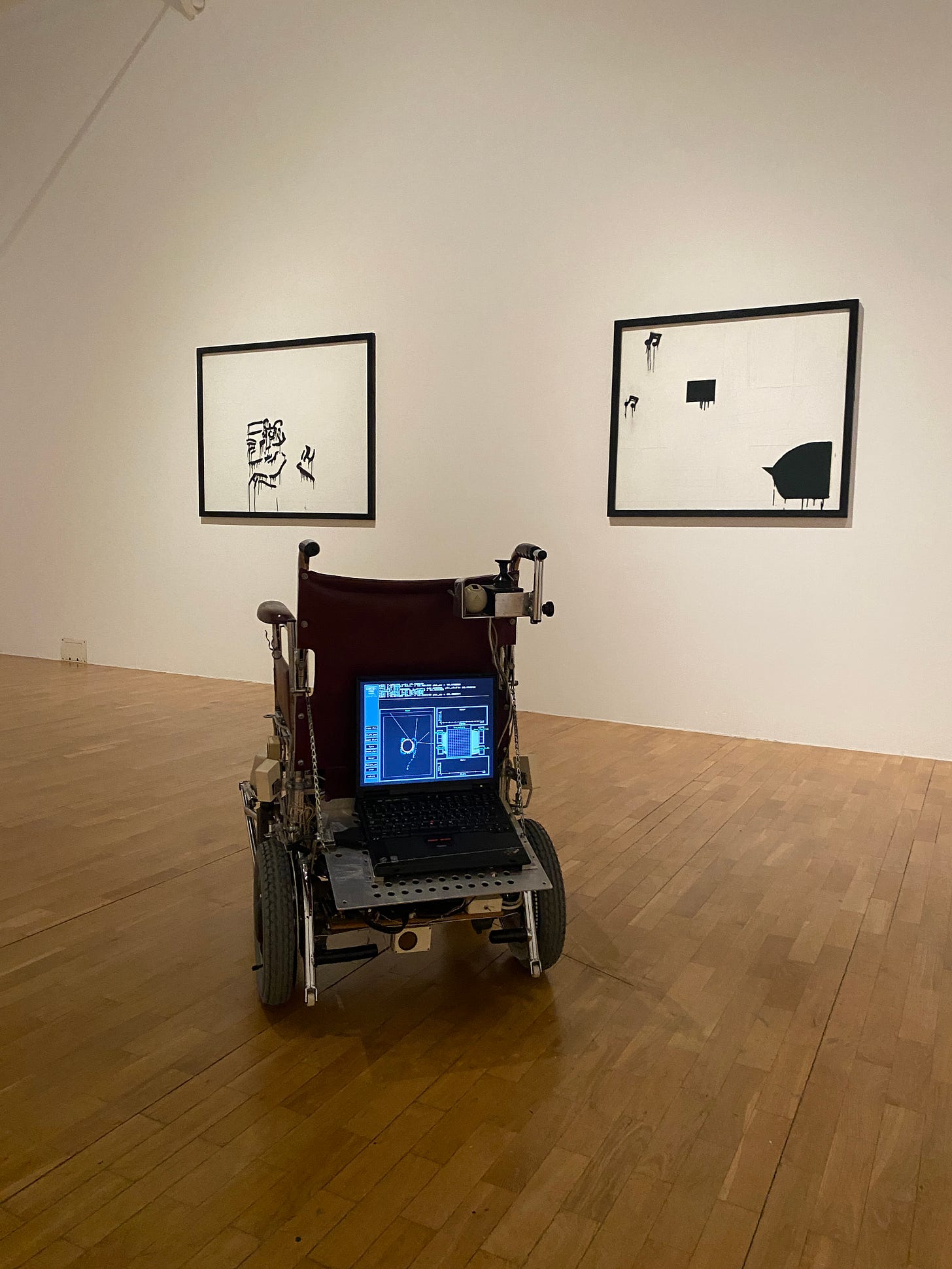Visceral Canker: Donald Rodney Speaks Through Time at Whitechapel Gallery
Notes on art, illness and unexpected moments of recognition

On Thursday, something extraordinary happened. For the first time since encountering Francesca Woodman's work at The Photographer’s Gallery in 1999, an exhibition brought me to tears. Visceral Canker —Donald Rodney's touring survey, currently showing at Whitechapel Gallery— caught me off guard with its directness, reminding me that art meets us where we are, at any given moment.
In 1999, Woodman's photographs showed me as a young, self-taught photographer, searching for validation in my creative isolation, that my sick body could in fact have a voice. Her body in the frame haunts those derelict spaces she used as backdrops, like a specimen in a Victorian medical archive or a spirit caught between worlds - at once physically present and ethereally absent. This duality, this vessel channeling grief through light and shadow, resonated deeply with my experience as a sick, female photographer.
Now, decades later, Rodney's work speaks with equal power through the deliberate absence of his body, transforming that void into a testament of life itself. Where Woodman used her physical form to map the territories of loss, Rodney's work pulses with vitality, precisely because of what isn't visibly there. Both artists harness the body - present or absent - as a profound vehicle for human experience, creating a visual language that feels simultaneously personal and universal.


Twenty-six years later, I found myself standing in front of Rodney's Psalms feeling that same profound connection. The force of his absence from that motorised wheelchair tornadoed through me – from the floor, up through my legs, hitting my chest with such impact that I felt winded as my tears brewed. Here was work that directly resonated with my personal experience of what it means to be Black and sick, to live with a body that frequently forces absence from your own life.
As we enter the gallery we’re greeted by Self Portrait: Black Men Public Enemy (lead image) – a cross formation of intimate portraits, each face partially obscured by a black bar, speaking to both presence and erasure, identity and anonymity. The installation carries immense weight, exploring themes of surveillance, medical documentation, and the complex relationship between visibility and vulnerability.
Remarkably, the curation creates a space that mirrors the experience of disability itself. As you step in from the frenetic energy of Whitechapel High Street, you're enveloped in a hushed atmosphere that's both jarring and comforting – much like the solitude that illness often imposes— a solitude that can feel like both a prison and a sanctuary.
This post isn't really a review – but an overflow of emotions and connections that demanded some kind of expression beyond an instagram post. The exhibition succeeds on many levels, beyond the obvious relevance of the work: it’s the sensitive curation, the excellent audio descriptions that make the work accessible, and the way that it allows Rodney's work to speak directly to us without academic intermediaries. I found the panel descriptions refreshingly simple.
If you’re wondering if you should visit, please do. Whether or not you share a specific connection to the work, there's something profound in experiencing art that deals so honestly with vulnerability. After our recent panel conversation about art access, care networks, parenting and disability at Wellcome Collection last week, seeing this exhibition with my daughter felt especially significant – a reminder of why accessibility in art spaces matter so deeply.
Donald Rodney: Visceral Canker is showing at Whitechapel Gallery until May 4, 2025.
Listen to my conversation with the exhibition curators Nicole Yip and Robert Leckie here.




